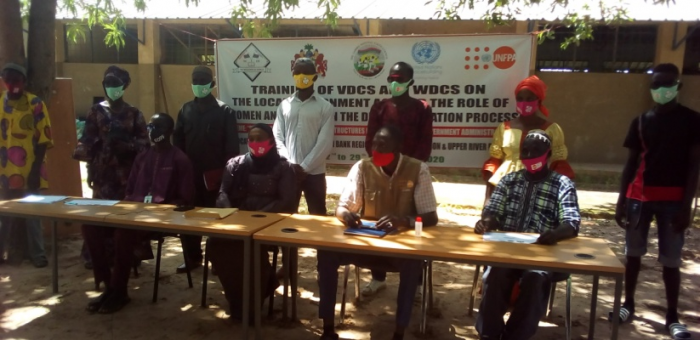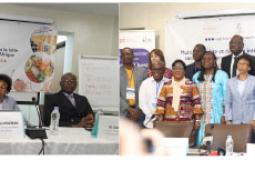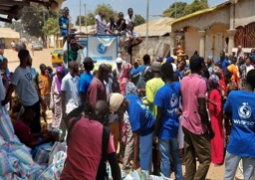
The training, which was held in Lower River, North Bank, Central River and Upper River regions was centered on the Local Government Act and the role of women and youth in the decentralization process and covid-19 prevention.
The theme for the trainings is titled; “Strengthening decentralized structures to improve local government administration.” 40 VDCs and WDCs will be trained in each region.
Yusupha Bojang, program manager National Council for Civic Education speaking at Kwinella’s training, said the training is geared towards strengthening VDCs and WDCs decentralization structures in regions.
Bojang explained that they observed that there are gaps in terms of capacities of some grassroots structures, adding that it is critical to strengthen them in terms of decentralization because they are the foundation.
“Some of them find it difficult to implement their function or fulfill their mandate which sometimes result to problems between them and village heads” he added.
These misunderstandings, he went on, are mainly a result of them not knowing were their mandate and responsibility stops.
“Both have to work together to improve the wellbeing of their communities,” he stated.
The training, he added, is designed to give participants the necessary tools to be able to effectively do their work so as to bring harmony among them and to enhance and sustain community development.
“The training is to also remind them about the roles and responsibilities of youth and women in decentralised structures” he added.
He maintained that the target is inclusive participation as voices of women and youth should count in decision-making processes to ensure there is peace at grassroots, wards and even at the regional level.
According to him, some of them have access to the Local Government Act, but reading to understand is another issue as some of them are elderly and not fortunate to be literate with the Act written in English.
He thus called on participants to disseminate the knowledge gained during the training as well as be prepared to put into practice what they’ve learned.
Bakary Juwara, UNFPA national program associate said their mandate is to deliver a world where every pregnancy is wanted, every childbirth is safe and every young person realises their potentials.
This, he explained further, was why they found it important to include VDCs and WDCs in the implementations of decentralized programs because they believe most vulnerable women are found within local communities.
Mr Juwara reminded that VDCs are meant to bring development to communities and as such it is important they are trained to know their mandate.
“Youth and women inclusion in VDCs is critical to sustainable development”.
Seedy Bah, councilor of Kwinella Ward described the training as timely, as some VDCs and WDCs are not functioning effectively with some communities even without VDCs.
He highlighted that “if village heads, VDCs and WDCs know their rights, responsibilities and mandates the development of their communities will develop easily”.
Read Other Articles In National News

UNICEF, stakeholders back every child to nutritious diet in first months
Sep 25, 2024, 11:09 AM




